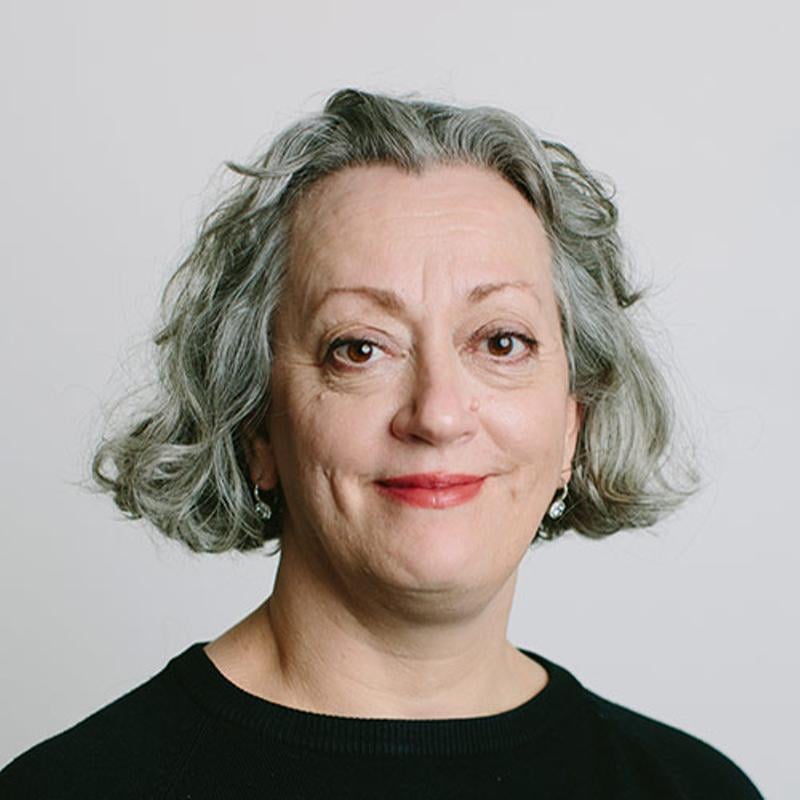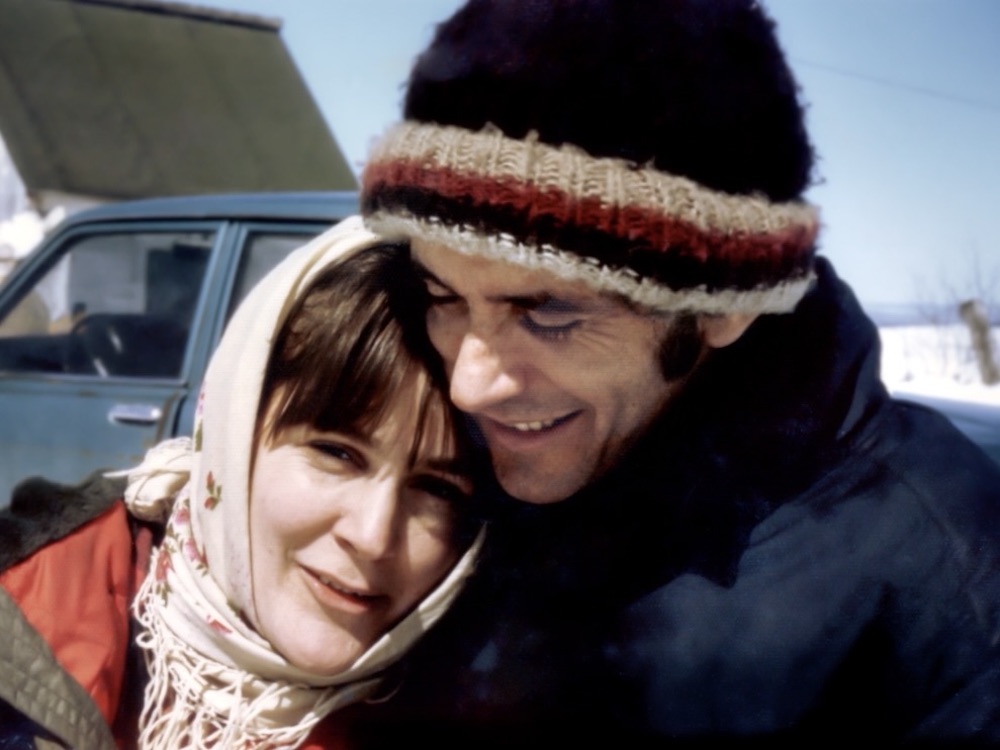On the surface, Jeremiah Hayes’s documentary Dear Audrey is about filmmaker Martin Duckworth and the late Audrey Schirmer, his wife of almost 50 years.
An intimate and closely observed portrait of a long-term relationship, it is also an extraordinary inventory of the costs of a shared life, and what it means to truly take care of the people we love the most.
The events of a long, storied marriage make up the meat of the film. While they’re fascinating, the central force of Dear Audrey is the eternal, almost implacable force of love that binds people together through the most difficult times.
It is this energy, emanating out in a thousand small ways, that lies at the heart of the film. Mysterious and ordinary, invisible yet undeniable. It is most vivid in the smaller, most tender moments of domestic life. In the couple’s final years together, as Alzheimer’s disease begins to leach away Schirmer’s ability to speak, care for herself and even recognize her family members, Duckworth takes on the role of primary caregiver. As he says, “My love for Audrey intensified during her illness.”
The couple met at an anti-war protest in Toronto in the early 1970s. Both were photographers and activists. When Schirmer asked Duckworth if he knew of a darkroom that she could use to develop her photographs, he offered up his own facilities. The next morning the pair woke up in the same bed together.
In 1971, Duckworth was still married to his second wife, Marianna Rydvald, a Swedish street artist and wild spirit who had returned to her home country. As he recounts in an interview, the dissolution of the marriage came after Duckworth was catapulted through the windshield of a Volkswagen van on a remote road in rural Mexico. At the time, the pair had been living in an artist’s colony in a small Mexican village with Rydvald’s infant daughter.
Duckworth landed on his head after the accident and was in a coma for 10 days. His return to waking life came with a vision of magnificent tree, so large that it encompassed the entire universe, and all of the many humans lives and dreams therein.
This is just one story. The film contains multitudes.
Born on a stormy night, headed for a stormy life
Duckworth’s own tale is extraordinary enough. Born in Montreal on March 8, 1933, in the midst of a bludgeoning blizzard, he arrived on International Women’s Day from a feminist womb, as his mother Muriel Duckworth was fond of reminding him. His father had to truck through fields of snow to make his way to the hospital in order to see his newborn child. Born on a stormy night, he was headed for a stormy life. “I’ve been through a lot of storms,” he laughs.
Duckworth came of age during the Great Depression, but it was the tumult of the late 1960s that shaped his vision as an artist and filmmaker. Over the course of his career as a filmmaker and cinematographer, he worked on more than 130 films. His work took him around the globe, documenting the events of the day, from the Vietnam War to the counterculture and civil rights movement.
Although the upheaval of the times made for great cinema, it wasn’t always easy on family life. Duckworth’s first marriage ended when his wife suffered a profound postpartum depression after the birth of twin daughters. After her suicide attempt, Duckworth took on full-time parenting duties, documenting his daughters’ childhood in the National Film Board production The Wish.
While the car crash coma hastened the end of his second marriage, as he recollects it was the decision to spend the rest of his life with Schirmer that changed everything. He undertook this change in course while camping overnight on Machu Picchu underneath a sky thronged with stars.
Over the course of their life together, Duckworth and Schirmer raised three children, collaborated on film projects and fashioned a unique creative partnership. While Duckworth taught film at Concordia University’s Mel Hoppenheim School of Cinema, where he insisted on giving all of his students As, Schirmer established the photography department at Montreal’s Saidye Bronfman Centre.
While larger events like war, political strife and social upheaval brought Duckworth into making more political films, he credits his creative development to his wife’s commitment to social justice and activism. But it was at home where the couple faced some of their most considerable challenges.
The intimacy of caring for each other
When their middle child, Jacqueline, was diagnosed with autism, Schirmer took 19 years off to be a full-time caregiver. At the time in the 1980s, autism was a poorly understood condition. As Duckworth admits, he didn’t understand his daughter, sometimes responding to her in frustrated outbursts.
As a young girl, Jacqueline was prone to running away. Even though her father slept on the floor outside of her bedroom in order to prevent her midnight wanderings, she would still find ways to disappear into the city’s urban centre.
When Schirmer was diagnosed with Alzheimer’s disease in 2013, she too took to wandering, leaving the house or in one case, a production of a Dostoevsky play to walk the streets. As his wife’s condition worsened, Duckworth again assumed a role of full-time caregiver, helping his partner to dress, to eat, and following at a careful distance as she heads off on her mysterious searches, looking but never finding.
Hayes proves to be a keen observer of the domestic sphere, filming the couple as they amble about their home in Montreal’s Plateau-Mont-Royal borough; trotting alongside Martin Duckworth as he takes to the icy streets of the city for a slow jog. Inside of these quiet moments, the deep intimacy that comes from a long-term relationship emanates out, creating a warmth that pervades the entire narrative. It is there in small jokes, a look or a pat. While Duckworth plays the piano, his wife ruffles her husband’s hair and rubs his back.
Alongside these familial scenes, the length and breadth of Duckworth’s career in documentary cinema is also documented in clips and interviews, providing a ribbon of larger history that flows alongside, and occasionally tangles up with more personal events. The ordinary quotidian stuff of life — going for walks, birthday parties, ping pong in the basement with grandkids, a visit to the pet store in search of a budgie that can talk — all the funny, odd, silly, sad things that make up life mix and mingle with this larger constellation of reality.
Interpolating this winding, swirling conflagration in Dear Audrey falls to animator Josh Sherrett. Sherrett’s drawn sequences, suffused with the explosive psychedelia or more simple illustrative ideas, add an intuitive layer to the events of the couple’s lives, whether it’s Duckworth’s headlong rush through a Volkswagen windshield or Schirmer also taking flight, Leica camera around her neck, a young woman returned to the place of her artistic origins.
For an instant, the gravity of time and space is suspended, allowing memory to fly free. Much more than grace notes, these sequences feel almost more truthful to people in the film than the documentary footage.
After Schirmer’s condition goes precipitously downhill following a seizure, the decision is made to place her into a seniors’ residence. But even then, Duckworth finds a way to remain with his wife, sleeping overnight in a cot beside her bed so that they can hold hands.
Although Schirmer passed away in 2019, here she is, a smiling, gentle presence, alive with humour and good grace. It’s a powerful reminder of the brief bubble of time and experience that is allotted to us humans, how we find each other, lose each other, and keep on keeping on, in spite of disease, aging and death.
That life is lived forward and remembered backwards is itself a strange experience. But the alchemy of cinema explodes this binary parallelism, so that memory flows uninterrupted into the everyday, colouring it with a watercolour joy that is both painful and beautiful.
'Dear Audrey' is playing at the Vancity Theatre in Vancouver from Aug. 12 to 24. ![]()

















Tyee Commenting Guidelines
Comments that violate guidelines risk being deleted, and violations may result in a temporary or permanent user ban. Maintain the spirit of good conversation to stay in the discussion.
*Please note The Tyee is not a forum for spreading misinformation about COVID-19, denying its existence or minimizing its risk to public health.
Do:
Do not: